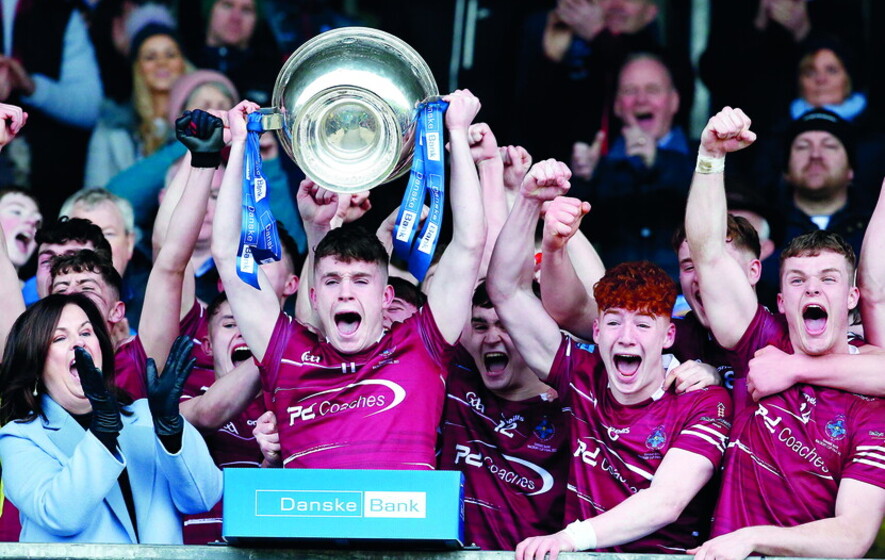Letter: Ulster Schools GAA creating a level playing field
August 30, 2023
30 August, 2023 Published in The Irish News ©
Before a ball is kicked in the new Ulster Schools GAA season, I want to pay tribute to the long list of volunteers who have transformed schools’ football in the past number of years.
You may ask ‘why does he say the past number of years’, given that schools football has been going for a century. This is true but for most of its lifespan it existed only for a select group of schools.
In 1928, when an Ulster Colleges Council was established, the MacRory Cup became the new body’s main competition. As if to copper fasten the elitist nature of the competition, only boarding schools were allowed to participate up to the late 1930s, when the first ‘day schools’ were permitted to join, most of them Christian Brothers schools.
Reforms emanating from the 1947 Education Act eventually resulted, by the early 1960s, in the opening of ‘Secondary Schools’ or ‘High Schools’. At this point no formal GAA structures existed for these ‘non-grammar’ children in the north. They were denied entry into the existing grammar school structures despite repeated requests to join. The fact is that discrimination existed, institutionalised by Catholic Church control over grammar schools at that time.
This situation remained until out of necessity ‘vocational’ competitions were established. In Tyrone and Ulster the familiar names of Art MacRory, Donal Donnelly, John McCusker, Tom McKeagney and Mick Brewster are owed a huge debt of gratitude for starting competitions for so-called ’non grammar’ schools and technical colleges. They were supported by a long list of teachers eager to give every child a chance to play football.
A notable exception to this divided system was St Pat’s, Maghera who became the first ‘non-grammar’ school to win the ‘the MacRory’ in 1977. The fact that they did owes much to teacher and football coach Sean Murphy who fought for his school to be allowed to enter the competition in the early 1970s. Ballinderry man Adrian McGuckin picked up the baton. His work was supported by the parents in neighbouring clubs and parishes who believed in both Adrian and the school. St Pat’s were brave enough to take on the establishment, whereas others remained within the grip of Church-controlled local politics.
The late arrival of ‘vocational schools’ and the prevalence of academic selection allowed the perception to develop that in some way it represented a lesser competition played by less able pupils.
Unfortunately, despite radical changes in education, this mindset still exists. It has no place in a modern world where equal rights for children are fundamental.
However, the erosion of this mindset is thankfully well under way and owes its demise to the work of Ulster Schools and in particular long-serving secretary Seamus Woods. The merging of ‘vocational’ and ‘grammar’ schools football was largely his work. What he has achieved in the past eight years has transformed schools football and hurling, removing from society what amounted to a class system within our schools. Thankfully, Ulster Ladies Post Primary and Ulster Schools Camogie had already implemented this root and branch reorganisation years previously.
Many within Ulster Schools GAA continue working to create parity of esteem and are joined by a list of other volunteers, mostly teachers, who will also play their part in making sure that elitism within schools football will soon become a thing of the past.
GAVAN McELROY
Carrickmore, Co Tyrone






